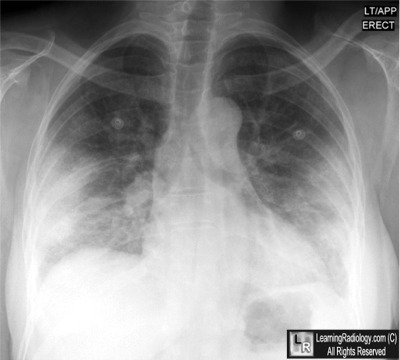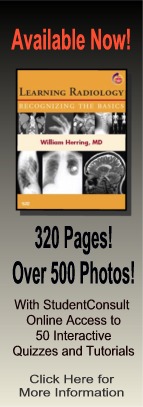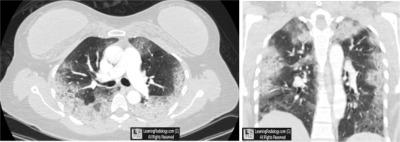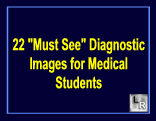| Cardiac | |
|---|---|
| GI | |
| Bone | |
| GU | |
| Neuro | |
| Peds | |
| Faculty | |
| Student | |
| Quizzes | |
| Image DDX | |
| Museum | |
| Mobile | |
| |
Misc |
| Videocasts | |
LearningRadiology Imaging Signs
on Twitter
![]()
Follow us on
What is the most likely diagnosis?
- 31 year-old transgender male with shortness of breath

Frontal radiograph of the chest
- Loeffler Syndrome
- Silicone Embolism
- Pneumocystis Pneumonia
- Measles Pneumonia
- Lymphoma
Additional Images - CT scans of the Chest
![]()
Answer:
.
2. Silicone Embolism Syndrome
.
.
More (Click Discussion Tab)
Silicone Embolism Syndrome
General Considerations
- Occurs following injection of liquid silicone, commonly for cosmetic purposes (most often young women and transgender men) due to low cost compared to plastic surgery
- Performed by unlicensed individuals at “pumping parties”
- Incidence unknown secondary to its illegal use by non-professionals
.
This Week
31 year-old transgender male with shortness of breath |
Presented as a series of cards, this podcast asks some of the most common causes of neuroimaging findings and diseases making it ideal for a quick review. Can be used as either an audio only or audio/video podcast.; Complements Video Flashcard Podcasts 15, 21,25, 38, 42, 46 and 47. |
Some of the fundamentals of interpreting chest images |
The top diagnostic imaging diagnoses that all medical students should recognize according to the Alliance of Medical Student Educators in Radiology |
Recognizing normal and key abnormal intestinal gas patterns, free air and abdominal calcifications |
Recognizing the parameters that define a good chest x-ray; avoiding common pitfalls |
How to recognize the most common arthritides |
LearningRadiology
Named Magazine's
"25 Most Influential"

| LearningRadiology.com |
is an award-winning educational website aimed primarily at medical students and radiology residents-in-training, containing lectures, handouts, images, Cases of the Week, archives of cases, quizzes, flashcards of differential diagnoses and “most commons” lists, primarily in the areas of chest, GI, GU cardiac, bone and neuroradiology. |




